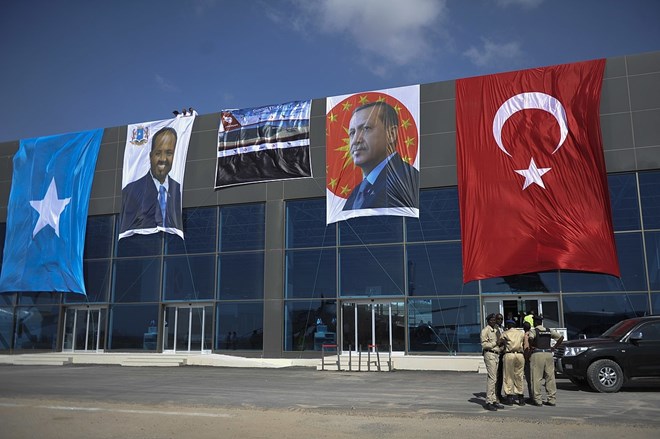
A fresh pact between Somalia and Turkey, inked on February 8, 2024, assigns Ankara to oversee maritime security in Somalia by enhancing its naval capabilities and conducting joint exercises along its 3,333km coastline. Alongside, another agreement seeks joint ventures in hydrocarbon exploration both onshore and offshore in Somalia.
Under the terms, Turkey would receive 30 percent of the profits from untapped marine resources as part of a strategy to bolster Somalia’s security while holding historical significance and significant geopolitical implications. The timing coincides closely with Ethiopia’s controversial deal with Somaliland, fueling concern in Somalia. Furthermore, the pact opens doors for Turkey to establish a naval foothold in this strategic area.
The Minister of Defence of Somalia, Abdulkadir Mohamed Nur, acknowledges the long-standing bond between Turkey and Somalia, dating back to 2011. Erdoğan’s initiatives after the civil war led to extensive humanitarian, developmental, and peacebuilding projects. Turkey’s military involvement in Somalia began with a training compact in 2010, evolving into Camp TURKSOM in Mogadishu to train Somali National Army units.
Expanding their military ties to encompass maritime security reflects Turkey’s aspiration to be a crucial player in the region and Somalia’s primary partner. The move grants Turkey access to essential maritime corridors linking the Horn with the Red Sea and the Indian Ocean, aligning with a broader shift in Turkey’s global engagements towards bilateral agreements rather than multilateral endeavors.
Related Posts
The recent agreement allows Turkey to position its maritime assets in a geostrategic hotspot, elevating its presence in the Horn outside multilateral initiatives. Ankara’s prior influence in Somalia through training programs has greatly enhanced its stature, creating an affinity among Somali elites for Turkish contributions in various sectors.
The pact mirrors Ankara’s strategy of ‘competitive coexistence’ with NATO and European allies, aligning on Somalia’s statehood while hinting at friction over other issues like Western imperialism in Africa. Additionally, Turkey’s engagement with the UAE poses a competitive dynamic, with Turkey gaining influence in Mogadishu at the UAE’s expense.
Somalia’s unstable state presents Turkey with an opportunity to test its peacebuilding vision, becoming a model for broader African engagements. The maritime security agreement extends Turkey’s reach to other regional players like Ethiopia, Eritrea, Sudan, the UAE, and Egypt, highlighting its alternative approach to peacebuilding policies compared to Western powers. Turkey’s visibility in Somalia sets the stage for further collaborations in Africa.
Spyros Sofos, affiliated with the LSE Middle East Centre, analyzes urban citizenship in Kuwait City. His expertise focuses on populism, collective action, conflict, and urban politics in Turkey and the MENA region, exploring the impact of Turkey’s involvement in Africa.